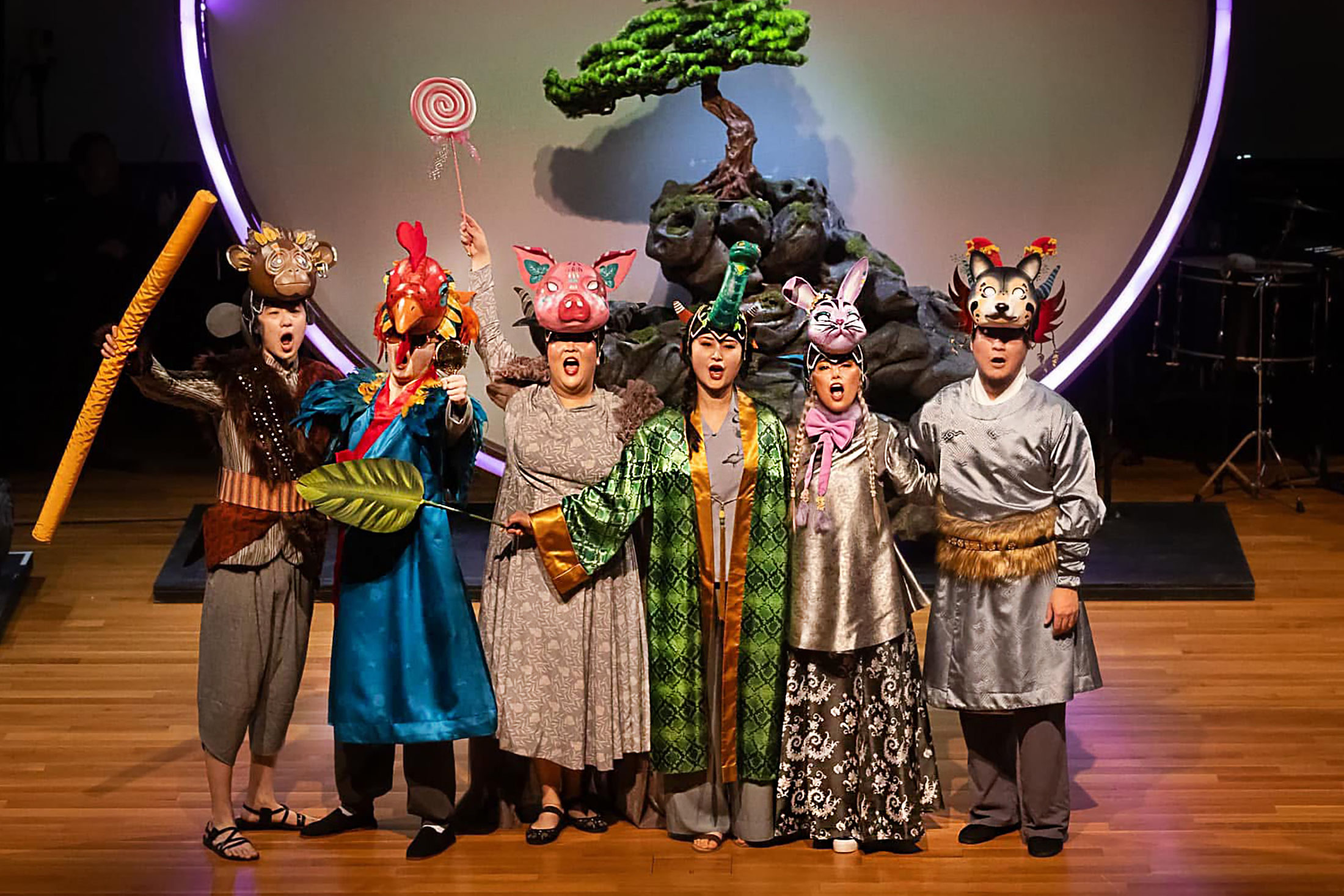Verdi’s Requiem Makes Its Dynamic Debut in Houston

Image: Houston Grand Opera
For all its glory, mercy, judgment and wrath, Verdi’s Requiem starts with a whisper. A lone quiet line in the cellos ushers in the delicate phrase, “Grant them eternal rest, O Lord.” A requiem, defined as a Mass for the dead, is a solemn ordeal, but from this opening murmur the Houston Grand Opera gave it an operatic punch of drama.
Written in 1874, Giuseppe Verdi’s Messa da Requiem is about as close as a requiem gets to opera. There are chromatic scales that wander up and disappear precociously and brash twists that tear into intimate solos like all great spectacle scenes. And there’s even intrigue: Verdi wrote the soprano part originally for Teresa Stolz who, rumor has it, was his lover.
Because the Super Bowl limited HGO’s rehearsal space in the last couple of weeks, the company put together a minimal production, giving audiences a treat for the ears more than the eyes with the tremendous sound an opera chorus has a special knack for and the pointed attention that an opera company pays to sensation and thrill.
There’s nothing like the wave of color that hits during Dies irae (Day of Wrath) when timpani, chorus and brass burst the seams of the Wortham Theater Center. Conductor and artistic director Patrick Summers was practically a character in this work himself, flashing his arms out and then pulling phrases lightly from the air with his fingertips.
And of course, there’s some stellar singing here. I can still remember Chinese bass Peixin Chen’s Dr. Bartolo from HGO’s The Marriage of Figaro last season. He has a voice you can swim in—encompassing, strong, boundless—and his performance here was no exception. Russian tenor Alexey Dolgov is also a familiar face at HGO, but without the same fond memories—most recently in Madame Butterfly and Tosca where his voice sounded tight and strained. With the requiem, he had more room to flex his voice that, golden as it was, still came up a little bit wanting in terms of volume.
If there’s a hero in this performance, though, it’s alto Sasha Cooke. After delivering some rich and uncompromising solos, Cooke took violently ill and ran off stage not once, but twice. Valiantly, she returned, proving (perhaps more than she wanted) how to pick up the pieces and deliver no matter what. She sounded great on Friday night—no telling what she can do in top condition.
Unlike most operas, the woman has the last word in Verdi’s Requiem. And American soprano Angela Meade made her HGO debut with a bang, lifting up this requiem to sacred heights. Her voice is as swarthy as Chen’s with some space to play. And although a few high notes in the spotlight at the end wavered out of range in dynamics and pitch, hers is a voice you’ll want to hear and never forget.
Thru Feb 18. From $18. Wortham Theater, 501 Texas Ave. 713-228-6737. houstongrandopera.org




